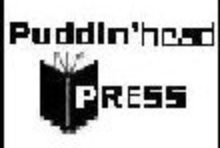
Published By The Puddin’head Press
Stapled Chapbook, 36 pages
5.5 x 8.5 inches, 2010
$6.00
Popularly known as the “play about nothing”. This play examines the attack of images and ideas that assault our senses every day and how it all has made the true reality in our society. Undecidability and simulation, relativism and fundamentalism, commercialism and kaleidoscopic change, plurality, subjectivity, and the routine rejection of the notion of objective reality are common aspects of contemporary life. They have become the assumptions that go largely unexamined during an era that is increasingly becoming dominated by virtual reality and detachment. They are a sign of the times.
Praise for Sign of the Times
Sign of The Times” offers “a universal message packed with thoughts and reflections. – Kambuika Kamunga – WBEZ Chicago Public Radio
Jeff Helgeson’s dedication to experiment, surprise, twisted absurdities,and language reflect and refract in Sign of The Times. – Marc Smith – Poetry Slam Founder
From the beginning, or even before the beginning, from what anticipates and thus exceeds the beginning, one thing is clear: this will be a play that raises many issues and yet, paradoxically, is about nothing. Not, it should be noted, about absolute nothing, or absolutely nothing—as though something, such as a beginning, could come from absolutely nothing—but rather about nothing as it permeates and surrounds every something, first enabling the present moment, the presence of each and every thing, now, here and now, for just a moment. A nothing that is thus at work at the heart of time itself, a nothing that is an operative force, at once positive—first making possible both presence and its approach, opening the expectant possibility of a future that is not yet—and negative, infusing withdrawal and absence into every presence, a slipping away of things themselves, their receding into an unfathomable darkness that language itself inhabits as it seeks to trace, to signify and convey, the approach and withdrawal of things themselves in their most concrete, tangible presencing. Language not only inhabits this abyssal nothing: this nothing, indeed, first calls forth the possibility and necessity of signification, thus of thought itself, as a response to the slipping away of things, of beings as a whole, in their very approach. Every gathering of things into and in the present moment is always already subjected to a dispersion wrought by… nothing. “[T]he beginning of nothing”: it is not that something, something else, such as the verse play or the signification of language, begins nothing here, first brings nothing into being, as it were. No, it is, rather, that every beginning is of nothing, already belongs, in advance of its very event, to nothing—that nothing, as an active force, first enables each and every beginning… …If things are not what they seem, not as they appear to be, if “Beneath the surface the currents do not cease to flow” (*ms p.25), it is not because (as Plato thought) there is some eternal truth beyond appearing; nor, as some post-modernisms would have it, because such appearing is only ever the self-referential play of infinite signification. It is, rather, this present play suggests, because all appearing is already subject to the force of nothing, because all appearing is already a disappearing act, because—beneath the surface—concealment and withdrawal are already at work, first giving rise to the surface itself: that is, to the times and their signs, to their emergence and disappearance, on this incredible scene of life…. – William McNeill, Author of The Time of Life: Heidegger and Ethos and The Glance of The Eye: Heidegger, Aristotle, and the Ends of Theory
About Jeff Helgeson
Jeff Helgeson is the author of a novel titled Thresholds, as well as numerous plays which have been produced in Chicago, Milwaukee, St Louis, and New York. He has served as the drama awards chairman for The Society of Mid-Land Authors and was a founding member of The Chicago Alliance of Playwrights, as well as both The Boxer Rebellion Ensemble Theatre and The Backstage Theatre Company. A graduate of The University of Chicago, he has taught at The School of The Art Institute of Chicago, Columbia College, Robert Morris College, and Roosevelt University, where he has also been a program administrator for several years, in addition to having served as the administrative advisor to the award winning literary magazine, The Oyez Review. He has also been active in the National Poetry Slam movement, having published Poetry Slam founder Marc Smith’s first volume of verse, Crowdpleaser and helped to produce two National Poetry Slam Competitions. Additionally, he has appeared in several theatrical productions, and he has regularly contributed to the Chicago visual arts community, working to organize a number of exhibitions, as well as writing “The Closer Look” column for the publication of The Chicago Artists Coalition.
Also by Jeff Helgeson: Fiction, Thresholds, 1999; Drama, Fall From Grace
Excerpt
Man #1 (moving to the front of the stage)
Zero-consciousness has replaced understanding.
Protean in nature, irrationality eclipses The Age of
Reason.
In praise of folly, news is now watched as
entertainment,
truth substituting for illusion and no real
distinction setting them apart.
With “Wheel of Fortune” following a few, brief
commercial messages,
I switch from carpet cleaning ads to reruns
of a show about nothing,
remotely in control, flickering a heap of
broken images,
a cornucopia of impressions, perceiving
nothing.
The great wasteland goes click clacking ever on
before me,
offering a myriad of choices, and making it
impossible to decide,
numbly blurring consciousness,
replacing anxiety with consumerist hysteria,
angst with continual distraction,
ennui with self-referential engagement.
It’s a sign of the times.
(He exits right front.)
Visit Sign Of The Times on Facebook.
Other books published by The Puddin’head Press.
See our full catalog of books.
